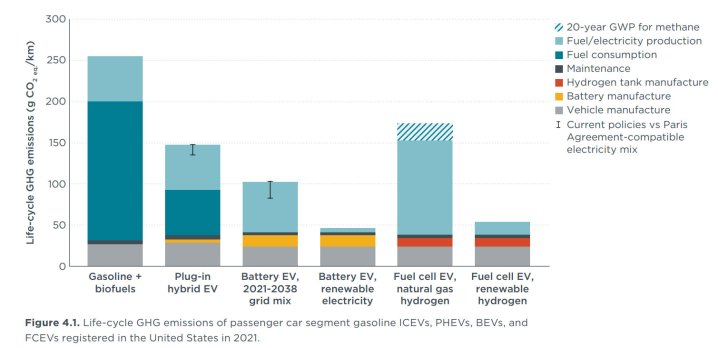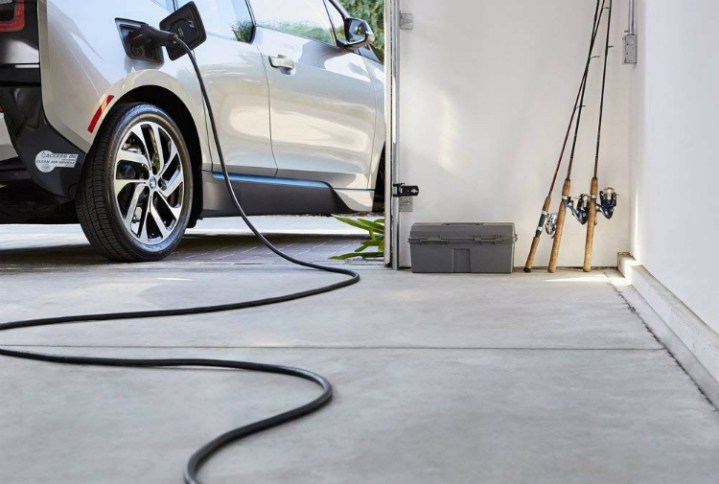While the world moves towards electrifying as many cars as possible, it’s only a part of solving the climate equation. Those electric vehicles still need to get charged, and if that power is generated by the likes of coal and, to a lesser extent, methane, it undercuts the cuts in emissions we’re aiming for.
Some EV critics claim that a dirty electrical grid completely negates any good an electric vehicle can do. But is that true? Let’s take a closer look at how a dirty grid affects the emissions of an electric vehicle.
EVs have a marginally higher up-front carbon cost compared to combustion engines, but those emissions are made up for over the lifetime of the vehicle’s use. By using electricity rather than gas, vehicles produce significantly fewer emissions, even when taking into account the cost of production and recycling.

The last report from the International Council on Clean Transportation (ICCT) paints a picture where EVs powered on the existing and projected American electrical grid are still more than twice as emission-friendly gas and biofuel cars. EVs powered by the existing grid mix are also more efficient than hybrids. We can improve these emissions further by running everything on renewable energy, but even without that grid transition, switching to EVs represents progress.
The ICCT’s is just one of many lifecycle assessment studies that generally agree that EVs running on a dirty grid are still cleaner than combustion vehicles. One 2018 study compared Canadian jurisdictions, and Alberta, which produces 67% of its power by coal, enables EV drivers with 50% better lifetime emissions versus gas vehicles.
China has had a bit of a head start with EVs, but its electrical grid is primarily coal-powered. Even there, electric vehicles emit 29% less than internal combustion cars.

One challenge with these calculations is factoring in what kind of power is used during vehicle production. One study in India found that its largely coal-based power grid contributed to higher emissions both during vehicle operation as well as production. These factors are estimated to make combustion cars the more eco-friendly option in that market for the time being. India has long-term plans to embrace renewable power, and EV lifecycle assessments like these hammer home the necessity of that transition.
A lack of EV battery recycling capacity still needs to be solved for, too. Without it, materials are improperly processed, increasing human and environmental exposure to a wide range of harmful metals.
Of the recyclers that exist, many do try to use renewable energy in their operations. Redwood Materials, a recycler founded by ex-Tesla CTO JB Straubel, actually uses residual power within batteries to support their recycling process.
Recycling methods vary vastly in their energy usage. Pyrometallurgy has been the traditional means of getting metals out of scrap, but it yields less than other methods and uses a fair bit of power to heat everything up. Electrometallurgy produces more material at the end of processing but uses even more power. Hydrometallurgy is much more energy efficient than both other methods, and recovers more materials, but is more expensive to run.
That said, lifecycle assessments attribute relatively few emissions to EV recycling compared to production and operation, especially since recovered materials can prevent emissions caused by the mining of virgin materials.
The environmental friendliness of electric vehicles isn’t measured in a vacuum. The grid plays a big role in determining the final footprint of an EV, but even when one is running on some of the world’s dirtiest power, it can still come ahead of gasoline cars.
Editors’ Recommendations
